
The second season of HBO Max’s Love Life explores some of the most cringeworthy aspects of singledom. In it, actor William Jackson Harper portrays Marcus Watkins, a publishing professional launched into swipe culture after a swift divorce who encounters mixed signals, meddling mommies, violent semi-exes, sneaky links, sexual mishaps, random small business solicitation and shady hygiene standards on his path to healing.
Above all, Watkins’ chief challenge is loneliness, a feeling Harper identified with particularly while filming a scene in which his character has what he describes as a “dark night.”
“There’s something about not having plans,” Harper told ESSENCE. “Like when you’re with somebody and you don’t have plans, that’s okay. When you’re by yourself and you don’t have plans that can mess with your head.”
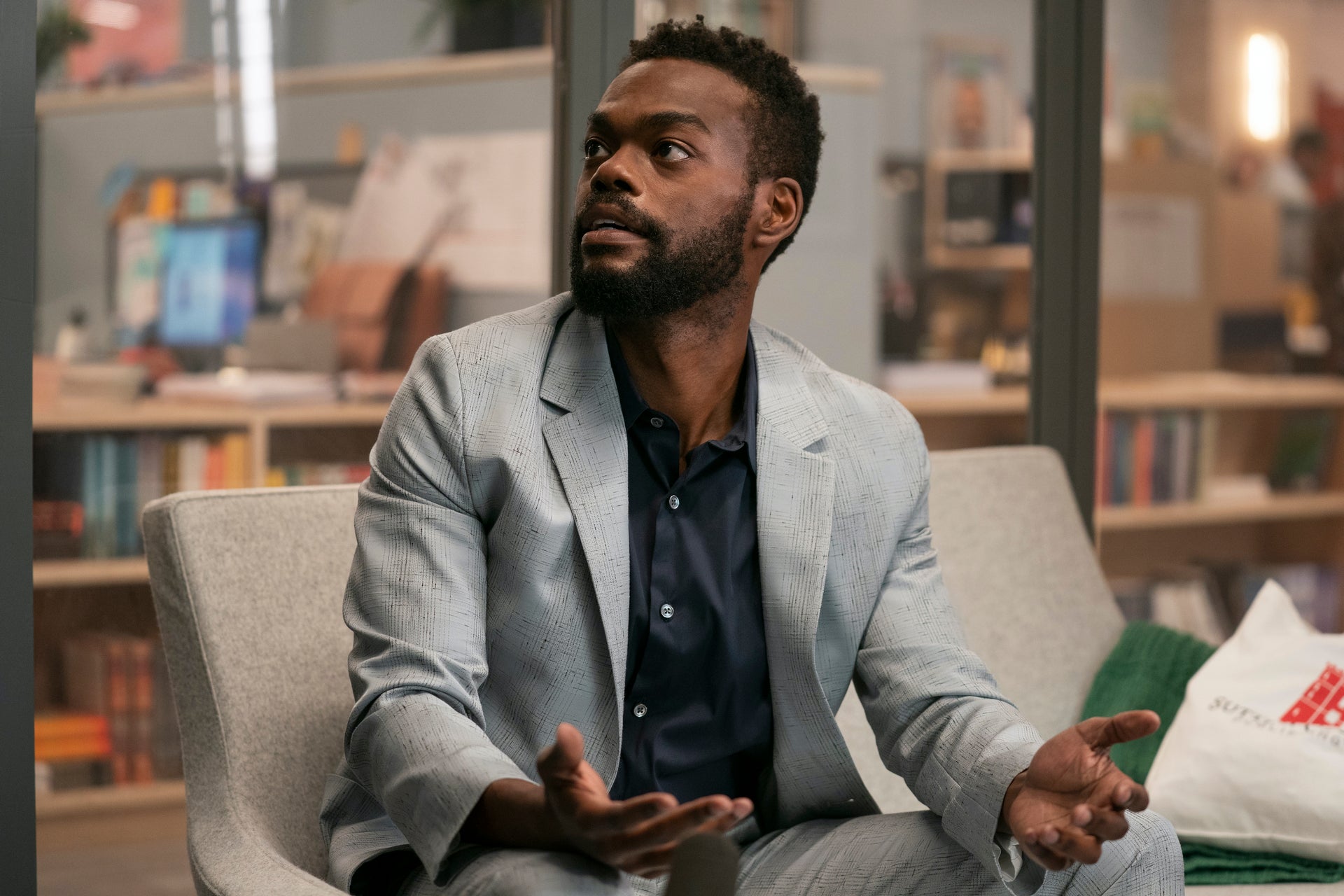
In the episode, Watkins, while desperately scrolling through a dry phone, internalizes the message “you’re nobody until somebody cuffs you” so deeply he becomes the weird boss trying to force subordinates to chill after work.
“This is a person who just had a very traumatic, emotional experience,” Harper explained. “Marcus makes mistakes. He’s a human being, and he makes his own messes.”
One of Watkins’ flaws is not acknowledging what he’s truly feeling. It’s one thing to not want to be alone, it’s another to be lonely simply because you want someone to want you. Watkins has the audacity to pretend he doesn’t want to be the object of anyone’s affections, yet feels entitled to them in the same breath. Rather than expressing his intentions, he drops ambiguous hints and becomes frustrated when they aren’t correctly interpreted.
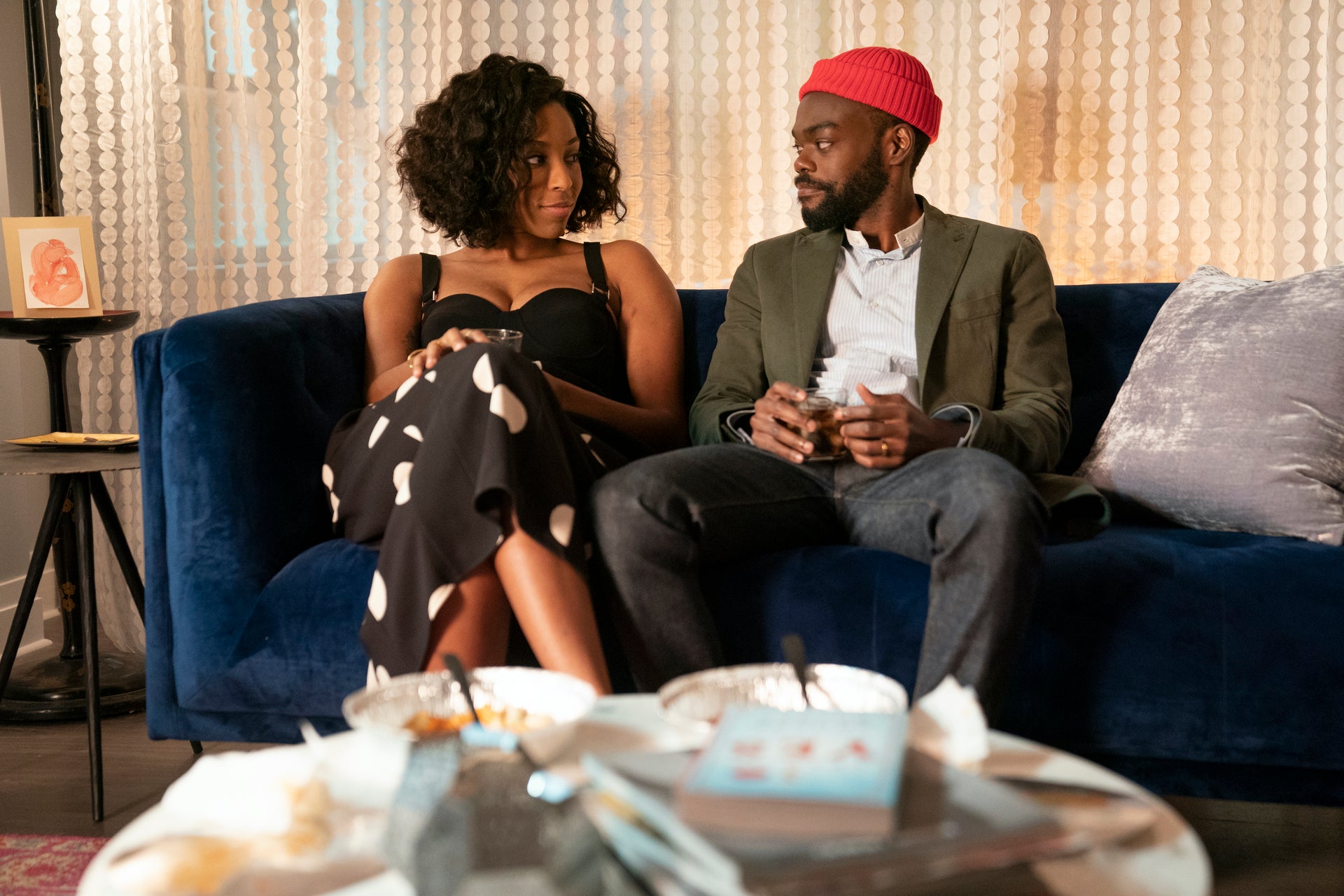
“I think people do that a lot,” Harper said. “I think that that’s how a lot of big transgressions happen, people just misunderstanding or just sort of jumping to these conclusions and going all over the place when they don’t really have all the information. I think that that’s what makes the characters interesting is that they make big, big mistakes.”
The journey Watkins takes is one we rarely see on screen. He’s not a 20-something white girl waiting for his life to begin. He’s a fully grown Black man looking for someone to stand by him as he moves through it. Sometimes his path includes saying goodbye to people which Harper admits is never easy.
“Even if you have the best of intentions, I think that there is a moment where even if the breakup itself feels very cordial and mutual, I think the resentments come out in some form or fashion,” he said. “Either way, there’s an element of projection that just hurts, you know? And also your pride is just injured and I feel like there’s no way to walk away from a relationship that doesn’t turn into a mess at some point.”
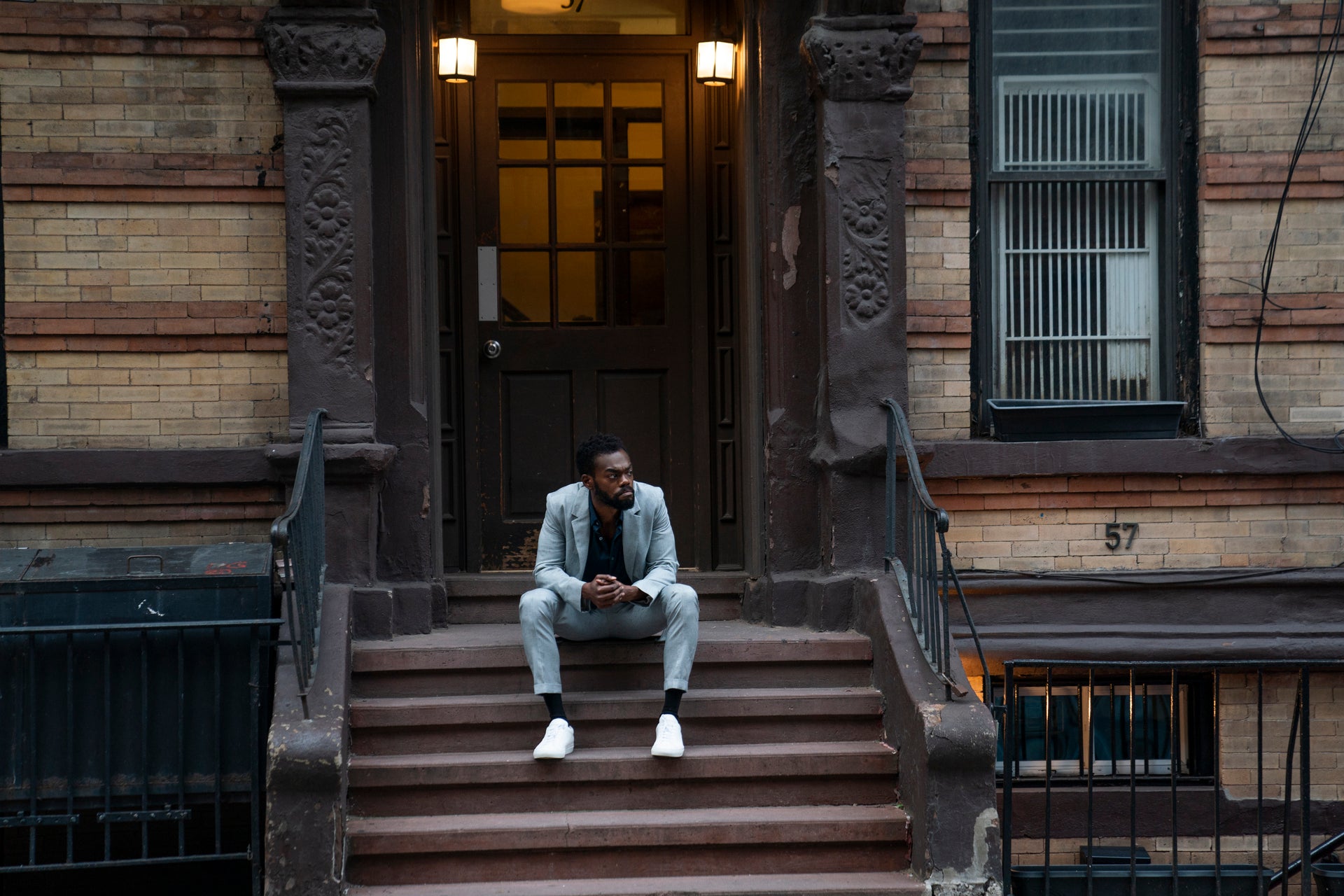
Those messes can, at times, be funny. In one episode, Watkins finds out a fling has a boot on her car, and a boo that’s about that life. In another, a sock-less co-ed introduces him to a new low.
More serious moments come when we learn Watkins’ frustration over his inability to connect isn’t just about the absence of a partner, but his experience being with someone who’s unable to fully understand what it means to live in his skin. Married to a white woman at the beginning of the season, it’s clear their marriage is doomed when she tells him he reminds her of “the guy from Reading Rainbow” before asking if he’s ever thought about getting an earring.
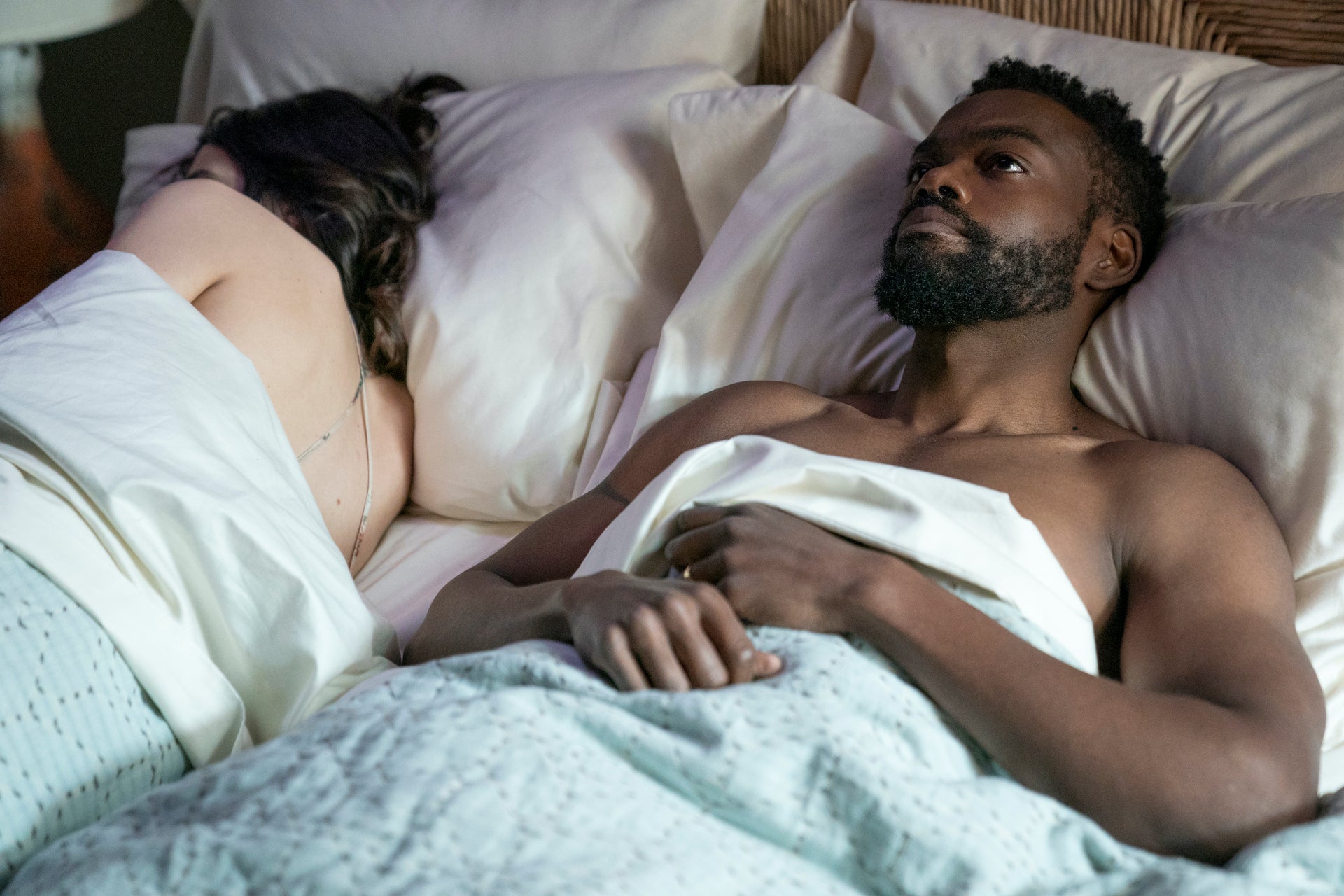
The shared ancestry that prevents such interactions is one of the things Harper appreciates most about Black women. “There is a support and familiarity that I just don’t have otherwise,” he said. “I feel supported by Black women in a way that I don’t feel with any other group. There’s this understanding of where I’m from and the nuances of what that is.”
Adding that he appreciates “not having to explain” or “sort of unpack things for folks” when in the presence of Black women, he continued, “There’s this connection that I gravitate to and I enjoy, and when it’s missing in my life, I really, really feel it.”
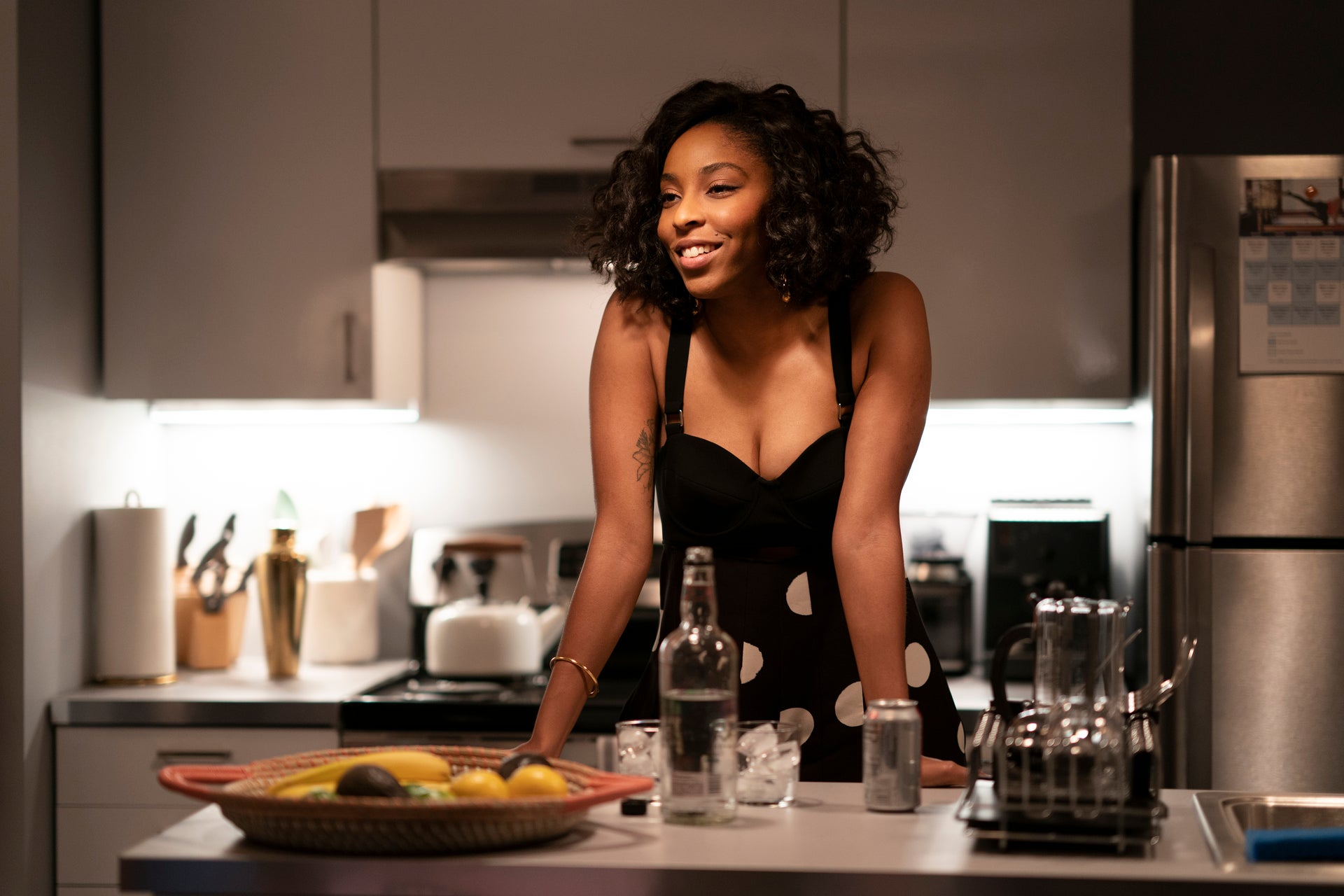
Harper and his character are both familiar with the power of being gathered by a Black woman as well. The pretty PG county girl Watkins tries it with, played by the perfectly casted Jessica Williams, sets the character straight about trying to stake an invisible claim to her heart. Watkins’ mother (Janet Hubert,) and sister (Punkie Johnson) are quick to call out his shortcomings as well. When he can’t take the “virtue signaling” of his colleagues during the so-0called “racial reckoning” it’s a Black woman who checks on him.
“I just feel like Black women just sort of see where I’m at and what I am and can tell me about myself in a way that’s constructive and actually helps me grow,” Harper said. “I can hear it and I can understand it. And it’s coming from a place that I just readily identify.”
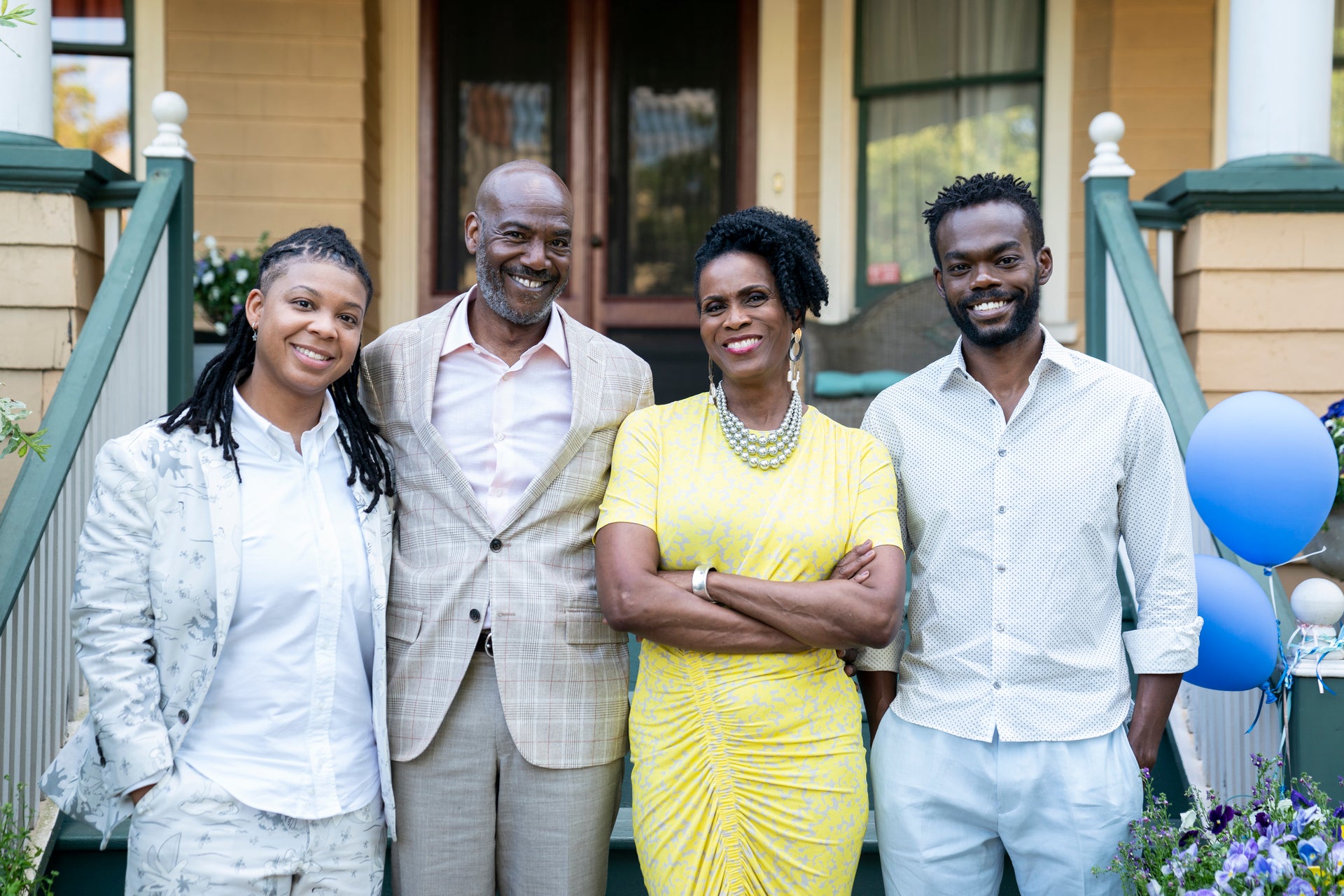
It’s for that reason Harper is empathetic to Watkins’ struggle to figure himself out. “Marcus is a highly flawed character and I hope that viewers can maybe look at some of his mistakes and look at some of his flaws. And maybe if they’re heading down some of these roads that he’s heading down sort of stop and do a self-inventory for themselves and figure it out,” he said while admitting his own self-inventory is still in progress,
“I thought that I was going to be done growing as a person by the time I was 30. And then I turned 30 and I was dead wrong,” he shared. “I’m just hoping that people feel comforted by the fact that it’s like, yeah, you’re going to make mistakes and you have to keep making them probably all the way until the very end, but that’s just being a person.”
Season 2 of Love Life premieres on HBO MAX on October 28.